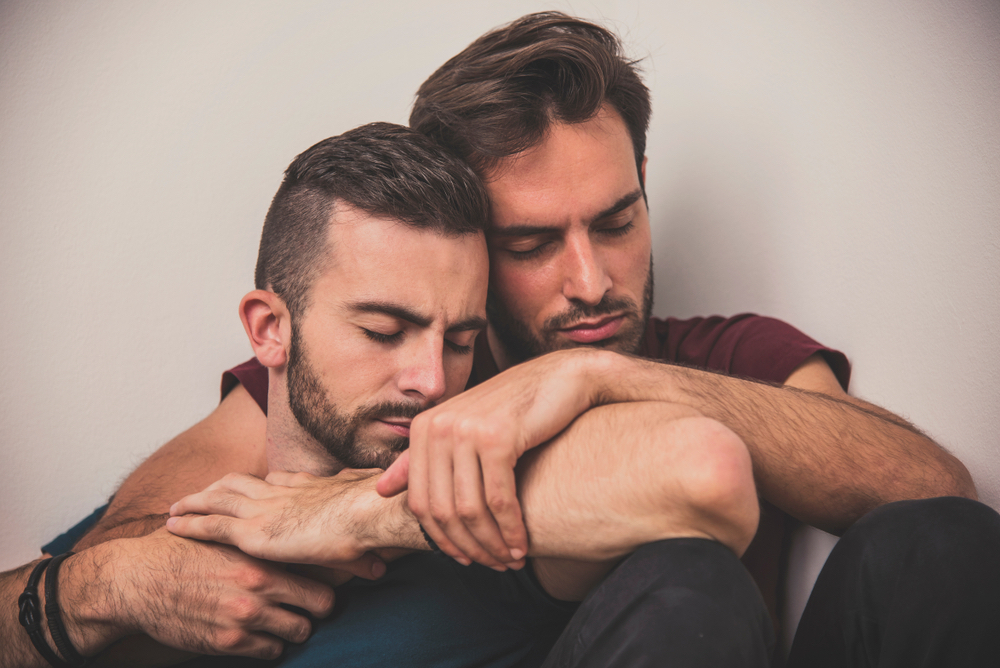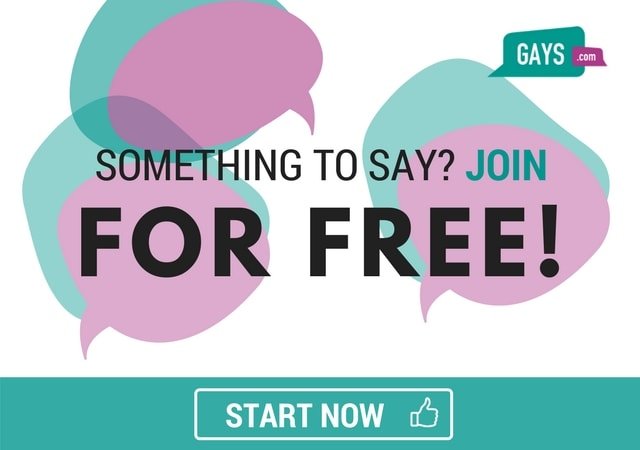Talking about depression is tough – particularly for members of the LGBTQ community. Indeed, a recent UK survey found that only a third of gay men would talk openly about their mental health issues. So, how should you go about dealing with depression with a new partner?
According to the American Psychiatric Association, LGBT individuals are more than twice as likely as heterosexuals to experience a mental health disorder during their lifetime. In fact, the US organization states they are 2.5 times more likely to live with anxiety, depression or substance abuse compared to their straight counterparts. Furthermore, a GQ survey from 2018 found that 34% of LGBT people had thought about suicide in the past year but hadn't attempted it.
But why is this? Well, there are multiple reasons, as we are sure you're already aware of. Hate crime, discrimination, alienation, issues with identity, rejection from family, friends – or even other members of the gay 'community'. The list goes on. All of things can cause mental anguish and trigger a depressive episode.
Gay and depression: talk matters
If you're living on and off with depression, it can be hard to know when to discuss your mental health with a potential partner. You may want to open up to them and be honest and open, but at the same time you may be worried about scaring them off. Here are a few tips to help you find the courage to bring up the issue.
1. Find the right moment
One big dilemma gay people dealing with depression face when they meet a new partner is when to tell them that they are living with the condition. This is, of course, a highly personal choice and depression is different for everyone.
You might fear being judged or rejected. But you will also have a gut feeling about the type of person you are seeing – and how they will react. Do not ignore this. Remember that most human beings are fundamentally decent, empathetic creatures. Unless, of course, you’re constantly attracted to Mr. Damn Right Wrong. But if you feel the relationship has a future, then you need to have a calm and honest conversation – and here’s how you should tackle it.

Gay and depressed? Don't suffer in silence: communication is key
2. Explain carefully
So, contrary to all your predictions of catastrophe, they haven't walked away. They're sitting next to you, supporting you and listening. Result! How you discuss your depression is important. In the first conversation, you are not obliged to go into any more detail than you feel comfortable with. If they're a keeper, there will be plenty more opportunities to talk as and when issues dealing with depression come up. Do not panic!
But there may be some things you want to make clear from the outset, especially if your new lover doesn't have much experience with mental health issues. Firstly, that depression is not you. It is a medical condition that you have. It can be treated. It does not dictate your character. This can’t be said too many times.
“One big dilemma gay people with depression face when they meet a new partner is when to tell them that they are living with the condition. You might fear being judged or rejected.”
When people are depressed they lose interest in things: work, play and, yes, (unfortunately) sex. They lock themselves away, crucified by feelings of worthlessness, and want to disappear. You need to gently let your partner know that these feelings are not who you are. They are merely symptoms of your condition – and they will, like everything, pass. Dealing with depression means recognizing this and not beating yourself up about it.
3. Yes, you are attractive!
Dealing with depression frequently often means confronting feelings of failure. You will see everything in black and white terms. Balanced thinking vanishes. Everything appears to be doomed. The word here is “appears”. These are your perceptions; they are not reality.
And nor is it a reality that every new partner you meet will turn away from you because you live with depression. In your darkest periods, you may feel you have nothing to offer the world; that there is absolutely nothing desirable about you. No, you do not have to explain to a new partner that this is how you may feel in the future.
However, you do owe it to yourself to recognize that depression lies to you; it wants you to retreat from the world; it even – at its most merciless – wants to destroy you. Getting out there and meeting people – including through dating – means not only dealing with depression, but defying it.

Being gay and happy: deal with depression together shutterstock/TeodorLazarev
Helping a partner with depression
So, what if you have a partner who is living with depression, anxiety or another mental health condition? Here are three ways you can help your other half in dealing with it – and help yourself at the same time.
-
Communicate and learn One of the best ways you can help a partner with depression is to acquire knowledge. Become an expert. Read as much as you can about your partner’s condition. But, more importantly, talk to them about how they are feeling. However, be aware that they will shut down at times. Be receptive and non-judgemental. Do not take it as a personal slight.
-
Remember the good times As mentioned above, the way your partner is behaving is not who he is. All you’re seeing are the frequently devastating symptoms of his illness. Taking time to remember who your man really is and reflecting on the joyous times you’ve had together is one of the best ways of helping a partner with depression – because in doing so, you’re giving them their real identity back.
-
Establish boundaries Never neglect your own needs in a relationship. You need to establish boundaries of what is and what is not acceptable. For example, no amount of mental anguish excuses physical abuse. Crucially, helping a partner with depression means preserving your own resources. Know when it’s time to be kind to yourself. Never forsake your own self-worth.
The bottom line: being gay and happy
Depression is rife within the LGBTQ community. As well as all the usual life stresses that heterosexuals deal with, we also face discrimination, rejection, hate – sometimes on a daily basis. These things can all lead to depressive feelings and low self-worth. Talking to a potential new partner about your mental health can fuel worries of further rejection, but opening up and chatting to them openly about depression can be one of the best steps you could make.
Indeed, talking about poor mental health is one of the best ways to tackle it. So, if you're starting to date a new partner, take a chance and open up to them – you never know, they may have their own issues with depression and anxiety. When it comes to relationships and being gay and happy, two heads really are better than one. Good luck! • Main image: shutterstock/Lopolo
Have you dated a guy living with depression? Or are you the one living with mental health issues and wanting to open up? Share your story with our gay community below...
-
 1
1






Join the conversation
You are posting as a guest. If you have an account, sign in now to post with your account.
Note: Your post will require moderator approval before it will be visible.
There are no comments to display.